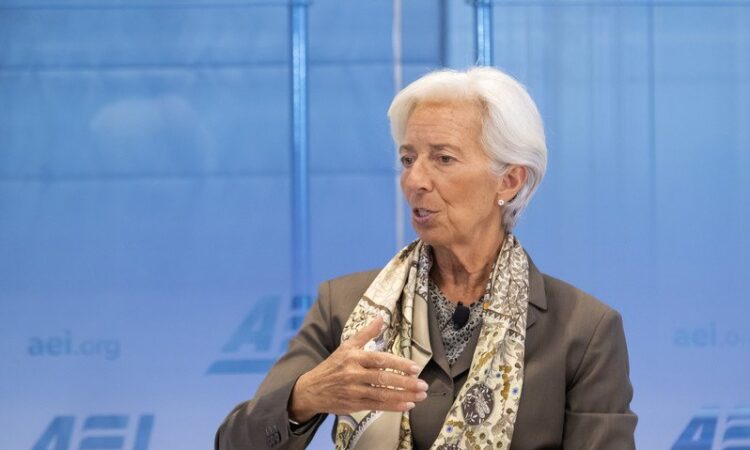
European Central Bank President Christine Lagarde is expected to make a rate decision next week. The IMF said Friday the bloc’s policymakers should err on the of caution when considering its next steps. File Photo by Erik S. Lesser/UPI
Managing Director of the International Monetary Fund Kristalina Georgieva is expecting slow growth for most major economies. The eurozone is expected to expand by less than 2% next year. File Photo by Bonnie Cash/UPI
April 28 (UPI) — The European economy is dancing on a knife’s edge in its efforts to arrest consumer-level inflation without ushering in a recession, the International Monetary Fund said Friday.
“Headline inflation continues to decline, but underlying inflation — excluding energy and food — will remain persistent and uncomfortably above central bank targets even by the end of next year,” said Alfred Kammer, the director of the European department at the IMF. “Recent and projected declines in energy prices will feed into lower underlying inflation, but not enough to bring it down quickly.”
Advertising
The import-dependent European economy was hammered by the war premium that propped up commodity prices for much of last year.
The Dutch Title Transfer Facility (TTF), a regional benchmark for the price of natural gas, peaked at around $365 per megawatt-hour (MWh) in August as Europe scrambled for alternatives to Russian supplies. The price for Brent crude oil, the global benchmark, reached $129.20 per barrel in June.
TTF was trading closer to $39 on Friday, while Brent was near $80 per barrel. Lower prices reflect an overall market adjustment to sanctions imposed on Russia, as well as lingering signs of a slowdown in the global economy.
Offering a series of what-ifs, and adding that “things could get worse on all fronts,” Kammer said inflation could stay higher for longer, while commodity prices could easily rally from here.
“We also might still underestimate how much the two back-to-back COVID and energy crises have damaged Europe’s productive capacity and further heightened inflation risks,” he said.
Growth for the economies that use the euro is already anemic. Europe’s economy flatlined in the first quarter with eurozone GDP up by just 0.1%
Continuing GDP stagnation in Germany, the bloc’s largest economy, dragged on the other major economies, all of which rebounded into the black from the fourth quarter of 2022, preliminary figures from Eurostat, the EU’s statistics office, show.
Among the 20 countries that use the euro, German GDP was 0%. The IMF expects a rebound of only 1.4% in 2024 for advanced European economies such as France and Germany.
Given forecasts for sustained weakness, Kammer said the European Central Bank should err on the side of caution in its effort to right the economic ship.
“If the inflation outlook is uncertain, there is more to lose from reacting too late rather than too early, because underestimating persistence would entrench high inflation and force central banks to tighten later for longer,” he said. “This would likely require a sharp recession to bring inflation back to target.”
A flash estimate of inflation over the 12-month period ending in April is expected to show little change from the previous month, with prices up some 5.7% over the year. That should incentivize another rate hike from the European Central Bank when it meets again on Thursday.






